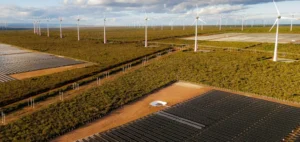Mali is pursuing its ambition to diversify its energy sources by turning to solar power. On May 28, 2024, the President of the Transition, Assimi Goïta, inaugurated the Safo solar power plant in the Koulikoro region. The 100MWp plant will be built on a 228-hectare site and equipped with monocrystalline silicon photovoltaic panels. This initiative aims to alleviate the frequent load shedding that affects both households and businesses in Mali.
Strategic partnership with China
The project is being carried out in collaboration with China, one of Mali’s long-standing infrastructure partners. At the groundbreaking ceremony, Bintou Camara, Mali’s Minister of Energy and Water, stressed that the project was emblematic of President Goïta’s vision for an energy system based on renewable energies. The project is 50% financed by the national budget, and is expected to be operational within 15 months.
Rapid expansion of solar capacity
This new plant joins another major project launched a few days earlier: the Sanankoroba solar power plant. With a planned capacity of 200MWp, it will be the largest solar power plant in sub-Saharan Africa, covering 314 hectares. Located some thirty kilometers from the capital Bamako, the plant is being built in partnership with NovaWind, a subsidiary of Rosatom, Russia’s Federal Atomic Energy Agency.
Towards energy autonomy
These initiatives are part of a broader strategy to diversify Mali’s partnerships, including with Russia, China and Turkey. In this way, the transitional government aims to strengthen its energy autonomy while committing itself to sustainable development. The eight-month electricity crisis has severely affected the Malian economy. These new solar projects should help to alleviate these shortages and stabilize the country’s energy supply.
The implementation of these projects illustrates Mali’s determination to position itself as a leader in renewable energies in West Africa. In addition to meeting the growing demand for electricity, these solar power plants will help reduce greenhouse gas emissions, thereby supporting global climate objectives.
These promising developments point to a significant improvement in energy conditions in Mali, paving the way for new economic opportunities and a better quality of life for its citizens.






















